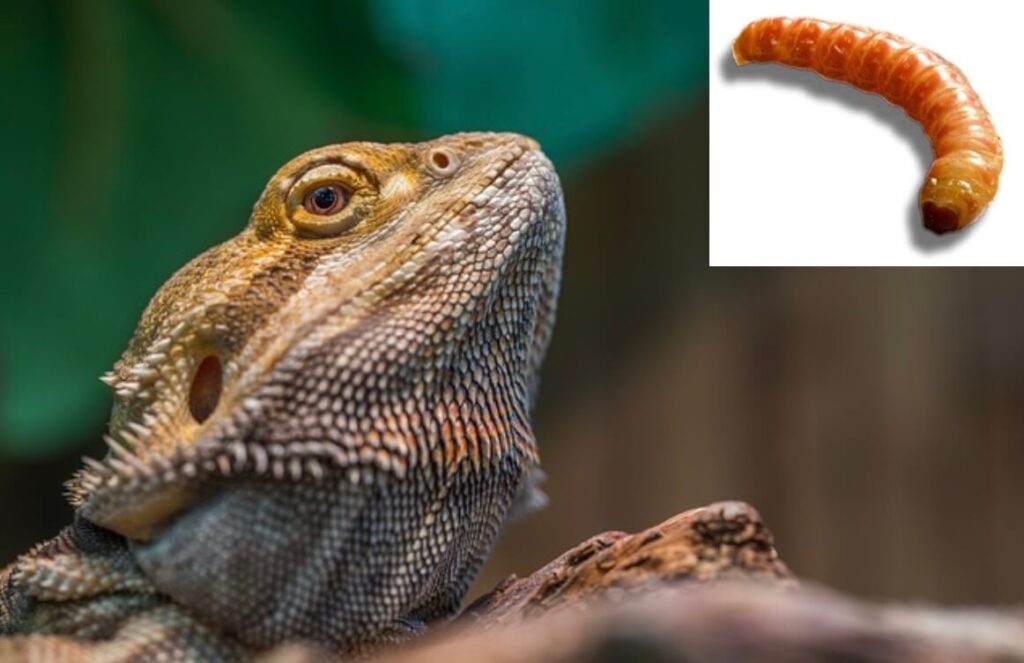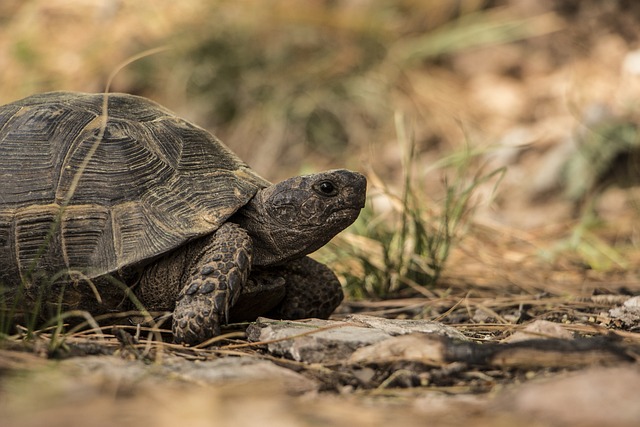If you’re wondering “Can bearded dragons eat butterworms?” the answer is yes! Butterworms are very high in protein and a great nutritional source for bearded dragons. However, because they are high in fat, there are other worms that are better for bearded dragons to eat daily.
In this article, we’ll explore the nutritional value of butterworms for bearded dragons and how to feed them properly. As well, see our full guide on feeding beardies worms here – Can bearded dragons eat worms?
Can bearded dragons eat butterworms?
- Can bearded dragons eat butterworms?
- Butterworm Nutritional Value for Bearded Dragons:
- How often should you give butterworms to your beardie?
- Should I feed my baby bearded dragon butterworms?
- Cons associated with feeding butterworms to your bearded dragon:
- Frequently Asked Questions (FAQ): Can bearded dragons eat butterworms?
- Foods bearded dragons can eat:
- Getting your bearded dragon calcium:
- Vegetables to feed your bearded dragon:
- Insects to feed your bearded dragon:
- How often should you feed a bearded dragon?
- What should a bearded dragon not eat?
- Recap: Can bearded dragons have butterworms?
Butterworm Nutritional Value for Bearded Dragons:
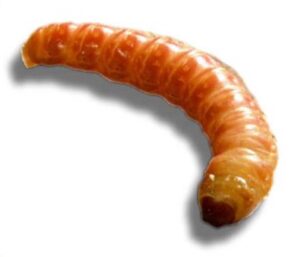
Butterworms are the larval form of the Chilean moth, which is a worm commonly used as fishing bait in South America. They are also sometimes known as tebo worms or trevo worms.
These worms have large amounts of protein, which your pet needs to grow and sustain their bone health. They also contain high levels of vitamins, fat, water, and importantly – calcium. Calcium is vital for a bearded dragon’s health.
Butterworms tend to be less expensive than worms like silkworms or phoenix worms. As well, some owners of bearded dragons report that their pet enjoys eating butterworms over other insects like crickets. They could be a great meal option if your beardie is a picky eater.
How often should you give butterworms to your beardie?
You can feed your bearded dragon butterworms every few days. The quantity depends on how old your beardie is and their overall health and fitness. Growing bearded dragons should eat more insects, about 80% of their diet should be insects and worms and 20% plant materials. As they grow into adulthood, this should be reserved, so that 20% of their diet is insects and worms and 80% plants.
This comes out to adult dragons eating about three times a day with between ten to fifteen worms per servings. Young and growing bearded dragons should eat about five times a day, with between ten to twenty worms per serving.
Of course, this depends on how many other insects you’re feeding your bearded dragon. If you’re also giving them roaches, crickets, and lots of plant matter, you can give them less butterworms. Test out what mixture of insects and vegetables your bearded dragon loves most by observing what leftovers they leave behind. Over time, you’ll develop the perfect daily concoction that fits your particular pet, and that will keep them healthy and happy.
Should I feed my baby bearded dragon butterworms?
Yes! It’s great for baby bearded dragons to eat butterworms because they’re so high in protein, and growing beardies need a lot of protein to grow properly. As well, butterworms are small and easy to digest for smaller bearded dragons.
Cons associated with feeding butterworms to your bearded dragon:
If you give your bearded dragon a butterworm you find outside, there’s always a chance it’s covered in insecticide or pesticide. When your dragon ingests this pesticide, it could poison them and cause them serious harm and distress. That’s why store bought or home raised worms are safest.
Butterworms are notoriously hard to breed in captivity, and are more commonly imported from Chile. Because of this, they can be hard to find in pet stores. Make sure to source your butterworms from a pet store or reputable online seller.
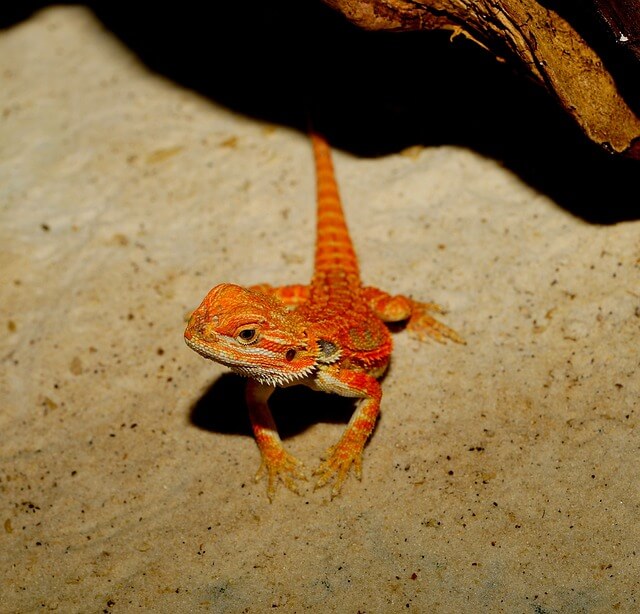
Frequently Asked Questions (FAQ): Can bearded dragons eat butterworms?
Can bearded dragons eat butterworms everyday?
Yes, bearded dragons can eat butterworms daily. However, make sure to keep an eye on your beardie’s weight. Butterworms are high in fat and bearded dragons are prone to obesity, so keep an eye out for any rapid and sudden weight gain.
Can bearded dragons eat mealworms everyday?
Mealworms are high in protein but high fat. While they technically can be eaten daily, they may cause obesity. You should feed your bearded dragon mealworms every few days.
Can bearded dragons eat wax worms everyday?
Bearded dragons can eat five to six wax worms at once, most days. They likely shouldn’t eat wax worms daily since they are high in fat.
Do butterworms bite?
No, butterworms do not bite. They are soft bodied and full of nutrition for your bearded dragon.
What bugs can bearded dragons not eat?
Avoid feeding your bearded dragon these bugs:
- Any bug that glows, especially fireflies
- Lightning bugs
- Poisonous ants like red ants
- Ladybugs
How often should a bearded dragon eat worms?
It depends on the worm type, but in general, bearded dragons should eat worms every two to three days. They can eat silkworms more often, every one to two days.
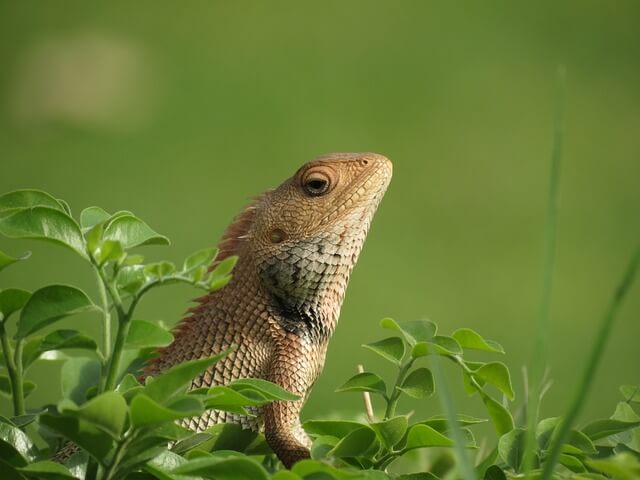
Foods bearded dragons can eat:
If you’re wondering what you should feed a bearded dragon, read our guidelines below. Bearded dragons are insectivores, which just means they thrive on insects as well as plant materials.
If you have a juvenile bearded dragon (between six and eighteen months old), give them about 80% vegetables and 20% live insects.
As your bearded dragon transitions into adulthood, give them the inverse, so 20% plant materials and 80% insects.
Getting your bearded dragon calcium:
Calcium is especially vital to a bearded dragon, especially a young one that is still growing. There are several ways to introduce more calcium into your beardie’s diet:
- Add in more high calcium vegetables like dandelions, bok choy, and collard greens.
- Dust calcium powder over their insects and vegetables to increase calcium levels.
- Make sure they’re getting their 12 hours of UVB exposure as they need this light to be able to properly absorb nutrients.
Vegetables to feed your bearded dragon:
- Peas
- Dandelion
- Green beans
- Cabbage
- Zucchini
- Pumpkin
- See our full list of vegetables to feed your bearded dragon
Note: Bearded dragons can also eat fruit in moderation. See here for a complete list of fruits bearded dragons can eat.
Insects to feed your bearded dragon:
- Crickets
- Kingworms
- Waxworms
- See our full guides to insects you can feed your bearded dragon and worms to feed your bearded dragon
Quick note: Live insects raised by you or bought from the pet store are best because they’re definitely pesticide free.
How often should you feed a bearded dragon?
During the first 3-6 months of your beardie’s life, try to feed them four to five times a day by giving them as many insects as they’d like in 10 minutes. They’re growing and need lots of protein during this stage.
Reduce the number of feedings to about two to three times a day when they’re growing into their juvenile years (between six and eighteen months).
As they become an adult, you can feed them once daily.
What should a bearded dragon not eat?
Avoid feeding your bearded dragon:
- Onions
- Leeks
- Chives
- Mushrooms
- Garlic
- Acidic fruit like oranges, lemons
- Rhubarb (can be toxic to them)
- Avocados (surprisingly, these make them ill)
- Eggplant
- Insects caught in the wild (there may be pesticides covering them)
- Venomous insects
- Dairy of any kind
- Rice and grains of any kind
- Frogs or toads
- Ham or other processed meats
Recap: Can bearded dragons have butterworms?
- Yes, bearded dragons can eat butterworms. They are high in protein, calcium, fat, hydration, and vitamins.
- Because they are high in fat, they shouldn’t be eaten daily. Rather, they are a nutritious snack that bearded dragons can eat every few days.
For our full list of food to feed a bearded dragon, see our guide here.
Related articles:

